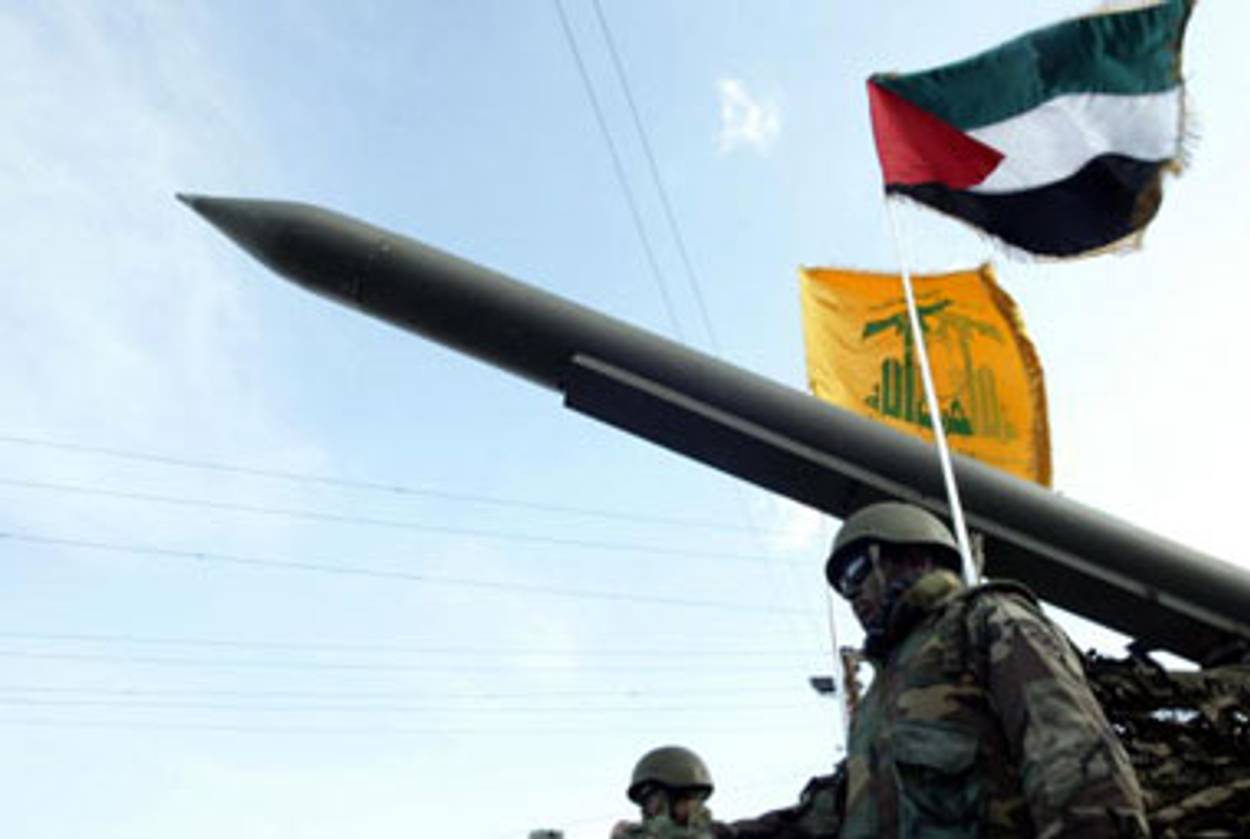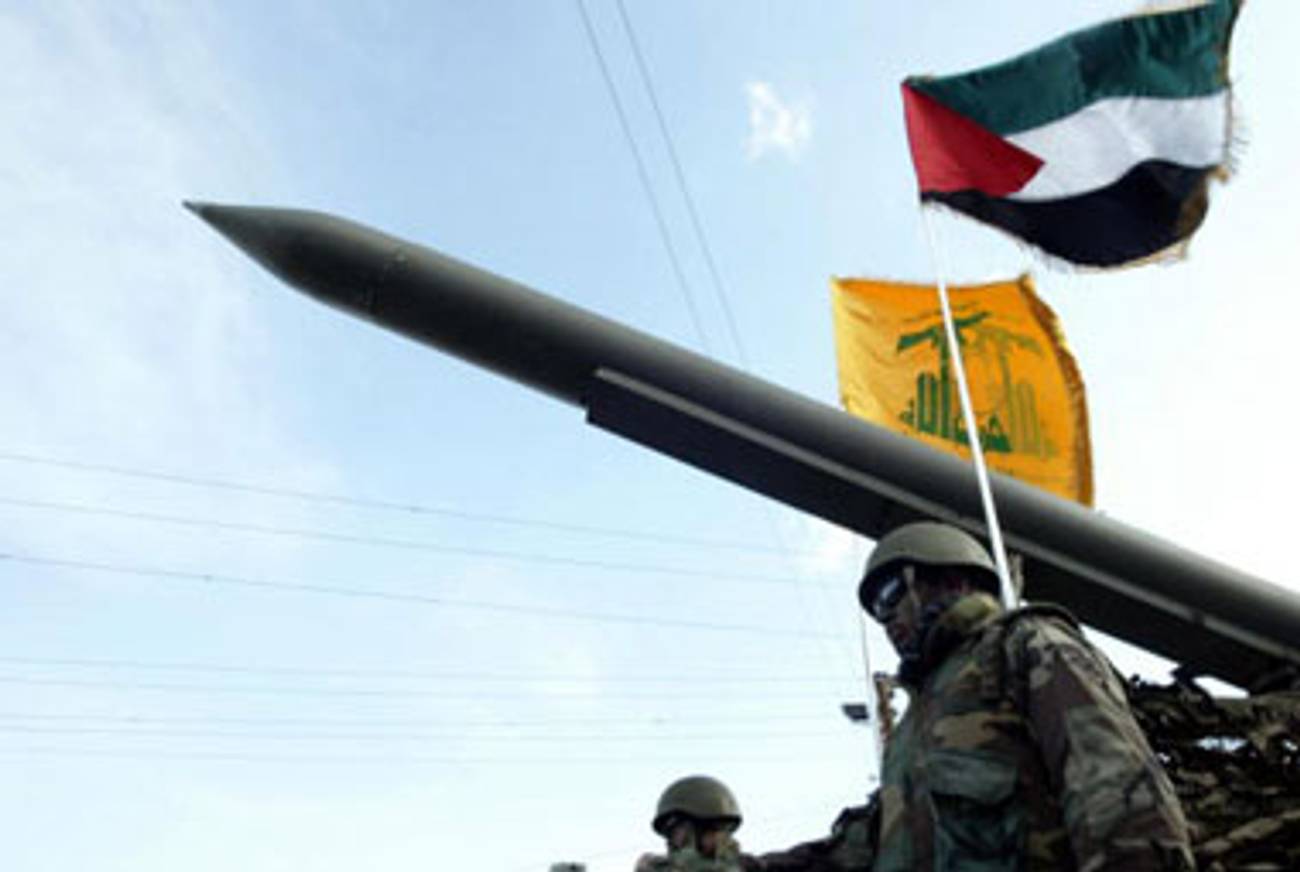Forbidding Sequel
Why a Third Lebanon War would be far worse than the Second




Despite losing last June in Lebanon’s parliamentary election, Hezbollah, the Shiite Islamist political party and paramilitary organization controlled by Iran and Syria, is once more in a position of political and military power greater than the one it occupied in 2006 when it provoked the Second Lebanon War with Israel. In July, a Hezbollah weapons depot exploded 10 miles north of the Lebanon-Israel border, causing the U.N. Security Council to accuse Hezbollah of violating the terms of the 2006 cease-fire. Two weeks ago, Israeli President Shimon Peres told a Kuwaiti newspaper that Hezbollah possessed 80,000 rockets for future use against Israel. For its part, Hezbollah has been especially voluble about retaliating for Israel’s 2008 killing of its military mastermind Imad Moughniyeh, and Hezbollah spokesman, Sayyed Hashim Safieddin, told Reuters recently that his group would make the Second Lebanon War seem like a “joke” if a third were initiated. The war of words has escalated to upper echelons of the Lebanese government, with Foreign Minister Fawzi Sallouk, widely seen to be allied with Hezbollah, telling Beiruit’s Daily Star that there will be “neither direct nor indirect negotiations with Israel.” Even the newly elected Prime Minister Saad Hariri, whose March 14 Alliance roundly defeated Hezbollah in June’s election, informed guests at his Beirut home few weeks ago that Hezbollah will for sure be welcomed into the new government whether the “enemy” Israel likes it or not.
According to Eyal Zisser, a senior research fellow at the Moshe Dayan Center at Tel Aviv University, any possible sequel to 2006’s Israel-Lebanon War would be “ten times worse.” This is due, he and other experts agree, to three factors: Hezbollah’s re-amped military capability, its top-down infiltration of Lebanon’s political system, and Israel’s adoption, since the end of the last war, of the so-called Dahiya Doctrine, which stipulates that Israel now makes no distinction between terrorist or paramilitary groups and state government in the event that the former is in any way represented in the latter. “What Israel is doing now,” said Tony Badran, a research fellow at the Center for the Defense of Democracies, “is trying to remind everybody, ‘If you start a war, this time we’ll destroy the place.’” Indeed, according to Israeli Prime Minister Benjamin Netanyahu, “If Hezbollah joins the Lebanese government as an official entity, let it be clear that the Lebanese government, as far as we are concerned, is responsible for any attack—any attack—from its area on the state of Israel. It cannot hide and say: ‘It’s Hezbollah, we don’t control them.’”
How likely is Hezbollah to provoke Israel into war again?
It pays to revisit how the last war, known to Israelis as the Second Lebanon War (the first was in 1982), broke out three years ago. On July 12, 2006, Hezbollah began firing rockets at Israeli border towns to distract from a more carefully coordinated attack: a cross-border raid by Hezbollah agents, who ultimately killed three IDF soldiers and kidnapped two more. Although Beirut, under the premiership of Fouad Siniora, officially disclaimed responsibility for these assaults, Israel ultimately placed the blame on his government, which included two Hezbollah ministers in Siniora’s cabinet. Thus, particularly after the first week of targeted aerial bombardment of known Hezbollah strongholds and weapons depots, the IDF began destroying large swaths of Lebanon’s infrastructure to preclude the enemy’s maneuverability. In the end, 400 miles of roads, 73 bridges, 350 schools (said to house Hezbollah militants), two hospitals, 15,000 homes, and Beirut’s Rafiq Hariri International Airport were all hit or destroyed by Israeli war planes. Over 1,000 Lebanese—mostly civilians—were killed and a million more displaced. Israel lost 44 civilians and close to 100 soldiers, and up to half a million Israelis in the southern border towns were displaced. The war ended officially with the passage of United Nations Resolution 1701, which called for the complete disarmament of Hezbollah and Israel’s full withdrawal from Lebanon, and the joint deployment of the Lebanese Army and the United Nations Interim Force in Lebanon (UNIFIL) to patrol southern Lebanon.
At the international level, Israel’s allies cited its right to self-defense and George W. Bush included the conflict in the broader “war on terror,” but it precipitated massive protests in Europe, the United States, and the Middle East. Inside Israel, the self-recriminations were particularly searing. By August 25, 63 percent of Israelis polled wanted Olmert to resign because of his perceived mismanagement of the fighting, which failed to rescue the kidnapped IDF soldiers (whose remains were later transported home). By October, the IDF’s chief education officer was the first military or government official to publicly declare that Israel had lost the war—an assessment that was validated by the Winograd Commission Report, which found that the war was a “missed opportunity” that ended “without a defined military victory.” And yet, Israeli introspection, according to Zisser, should not be mistaken for weariness or hesitation. “There is agreement in Israel that a war against Hezbollah can’t be won. You can’t occupy Lebanon, you can’t destroy an Iranian proxy,” he said. “The question is: how painful the blow should be dealt.” The current Israeli strategy, he pointed out, is to avoid another escalation but to conclude it much more quickly if it does happen. “One of the problems last time was that Bush gave Israel a free hand,” Zisser said. “The war would have come to an end three days after it started. As far as Israel was concerned, two or three weeks were a waste of time.”
And since 2006, little inside Lebanon has changed to forestall Hezbollah from committing further acts of adventurism, according to Lee Smith, a visiting fellow at the Hudson Institute. As he indicated, even though the pro-Western, Sunni-aligned March 14 Alliance won a decisive victory in June’s election, the nature of Lebanon’s pluralist political system means that Hezbollah, whose own Shiite-Islamist alliance came in second, is still accorded influential roles in the upcoming government. According to Haaretz, it is widely expected that newly elected Prime Minister Saad Hariri’s 30-member cabinet will include 15 ministers from his own coalition, 10 ministers from Hezbollah’s, and five independents to be chosen by Lebanon’s Maronite Christian President Michel Suleiman. To get a sense of how precarious and vulnerable such a system is, Smith said, Hariri is forced to include a terrorist group widely rumored to have planned and executed the 2005 car-bomb assassination of his father, Rafiq Hariri, whose murder was the event which sparked the Cedar Revolution and ended Syria’s decade-long occupation of Lebanon.
“The government, whether under Siniora or Hariri,” said Smith, “can’t restrain Hezbollah from doing whatever it wants, whether it’s starting another war with Israel or going through West Beirut and murdering Sunnis. Lebanon isn’t really a functioning democracy, it’s a place where a terrorist organization has weapons and sets the agenda.”
However, Hezbollah is restrained by one entity: Iran, its patron and arms dealer. “There’s no such thing as a non-state actor,” Badran said. “If Iran’s Supreme Leader Ali Khameini decides to activate Hezbollah—either to retaliate against a future Israeli bombing of Iran’s nuclear program, or for some other reason—then another war will happen.” He added that a “game-changer” that might prompt a preemptive strike by Israeli would be Hezbollah’s acquisition of certain anti-aircraft weaponry which could take out IAF warplanes. At all events, Badran said, the Dahiya Doctrine makes any future conflict nationally encompassing.
Coined by Maj. Gen. Gadi Eisenkot, the Dahiya Doctrine refers to the IDF’s destruction of a Shiite quarter of Lebanon in 2006 after that quarter had been overrun by Hezbollah commandos. The rules of engagement for that operation, said Badran, have now been expanded into both a means of deterrence as well as a broad-stroke plan of attack should deterrence fail. In that grim contingency, he added, where government buildings and civil institutions in Beirut are pounded, Lebanon’s center would likely fall, creating a power vacuum or civil war. “The result would be sectarian religious warfare, which nobody wants—certainly not the Israelis.”
Zisser said that within hours of any future war, Israel would take out Lebanon’s electricity, its main airport would be incapacitated, and major roads and bridges would be destroyed. Strategically, Badran noted, this makes sense because Hezbollah’s defenses are stationed mainly in the north, above the Litani River. Citing the Dahiya Doctrine, and the IDF’s release of a video allegedly showing Hezbollah agents trying to commandeer residential homes in a southern Lebanese village (before being turned back by the villagers and Lebanese soldiers), Badran painted a hypothetical scenario in which Hezbollah had to mobilize. “Let’s say Hezbollah tries to move weaponry and personnel into the Shouf Mountains, which they did in 2006 when they moved into Mari, a Druze village. The villagers denied them access then, and the Israelis worked with them by hitting various access routes which Hezbollah was using. Now what happens if next time the villagers prefer to avoid skirmishes with Hezbollah? What will Israel do then—level the village?”